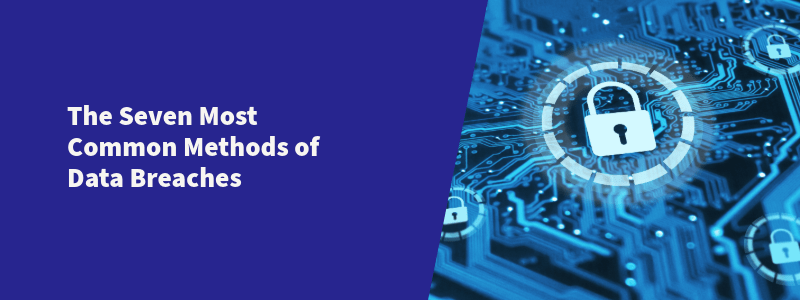Data protection is fast becoming one of the key concerns amongst businesses across the country. As technology becomes more ingrained into the business landscape, the types of threat to businesses reliant on digital features grow. So how do you identify the most likely ways that you will be caught out by these various threats? Understanding what they are for a starter for 10 is the best way to have a plan of action. So, what are the UK data protection laws and how do they impact you?
Data Protection Laws
The UK data protection law is a way of controlling how personal information is used by organisations and companies. As you read on, you may think this all sounds similar to GDPR. That’s because that is the UK equivalent. When the UK left the European Union, they kept a lot of the detail but renamed the law the Data Protection Act.
The detail of the law states that businesses must follow ‘data protection principles’, which include:
- Information is used fairly, lawfully and transparently.
- Information is used for specified, explicit purposes.
- To be used in a way that is adequate, relevant and limited to only what is necessary.
- The information is accurate and, where necessary, kept up to date.
- It isn’t kept for no longer than is necessary.
- Information is handled in a way that ensures appropriate security, including protection against unlawful or unauthorised processing, access, loss, destruction or damage.
Breaking any number of these rules could find you fined for data breaches.
Why Criminals Want Your Data
People want data for all kinds of reasons. Customer data is not only sensitive but valuable. Businesses often use this data to sell to customers, or to more accurately appeal to them with new offers or products. This information – including phone numbers and addresses – could be used to crack passwords or commit more sinister crimes. When it comes to businesses, though, criminals are looking to hack into your confidential information to extort cash from you. And there are several ways that people can look to access your data for their own gain.
Click Here to Call for Confidential Waste Quote
7 Most Common Causes of Data Breaches
Poor Passwords
This is one of the easier ways criminals can access your data – through poor password use. Many people still use common passwords related to names, dates of birth, or easily accessible details. To avoid this, think of complex passwords that are hard to crack, including upper and lower case and special characters. Anything that’s not specific to your business or life, that is.
Untrustworthy Staff
There’s certainly a chance that some staff could be untrustworthy. Sensitive data should be kept to those in higher positions and more trustworthy staff. Everyone having access to these details is an own goal waiting to happen. Either directly or indirectly, staff could cause your business to break Data Protection rules.
Theft
There’s a chance that someone could simply steal this data in the old-fashioned sense. Leaving these details unsecure in your business will attract thieves. So the best way to ensure these details stay safe is to make copies and keep the information in a secure place away from prying eyes.
Phishing
Phishing is the act of sending spam emails and communications to unsuspecting victims, asking to click links, input details or send replies to messages. With this data, criminals can get into any of your digital records, leaving you helpless without proper security on your systems. To protects against these problems, offer your staff training on how to better identify these phishing messages.
Malware
Malware is software designed to cause major disruption to a computer, system or server. These pieces of software can enable criminals to access hidden parts of your computing system. This software can sit on your computer system without you knowing and is difficult to remove, often costing vast sums if the system is even fixable at all.
Accidents
Human error does occur, and that’s something you have to be ready for. Accidents happen, but you need to be able to minimise these in order to reduce the risk they pose. Educating people on how to avoid making accidents is one way, but putting thorough plans in place and directions to follow when doing certain tasks can help avoid human error.
Lack of Cyber Security
So many businesses don’t have adequate cyber security running across their networks. At times, this is because it costs so much to run. While this is true, there is cyber security software that is affordable for smaller businesses. This can protect small numbers of computer systems and is easily available to download.
You’ve probably gathered from this post that confidential information is sensitive and should be kept under lock and key. Digital data is kept on computer systems and can easily be deleted, but physical paperwork still needs properly disposing of. The law states that you must hire a dedicated confidential waste specialist. Someone like Direct365.
Dirct365 has over a decade worth of experience with confidential waste, and can quickly and discretely dispose of this waste, ensuring you are compliant with UK Data Protection laws.
For more information, simply fill out the form below.


